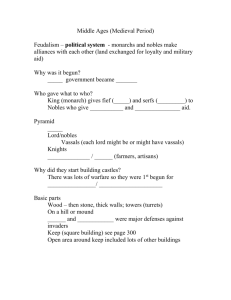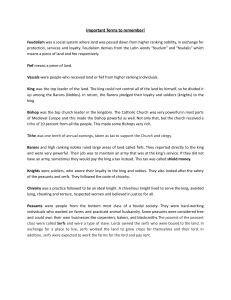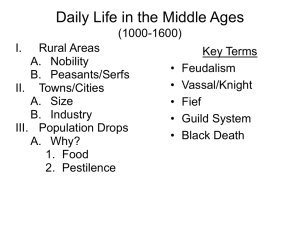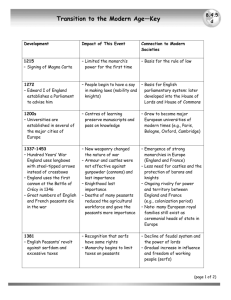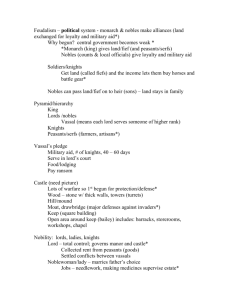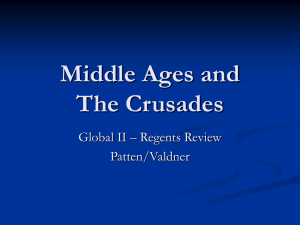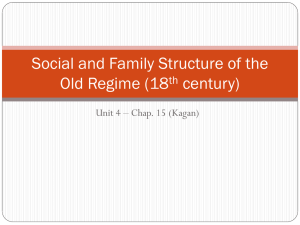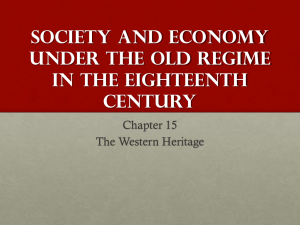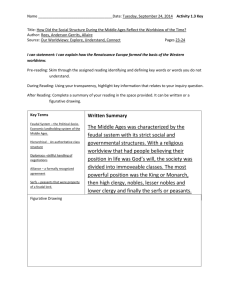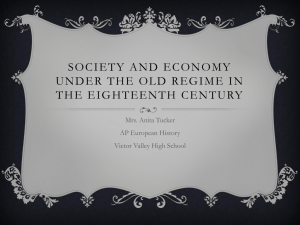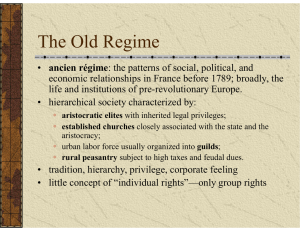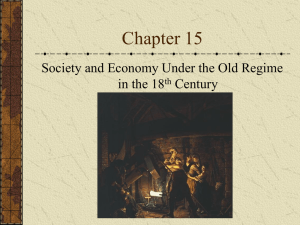Obligations Of Peasants Well over 50 revolts in Russia between
advertisement
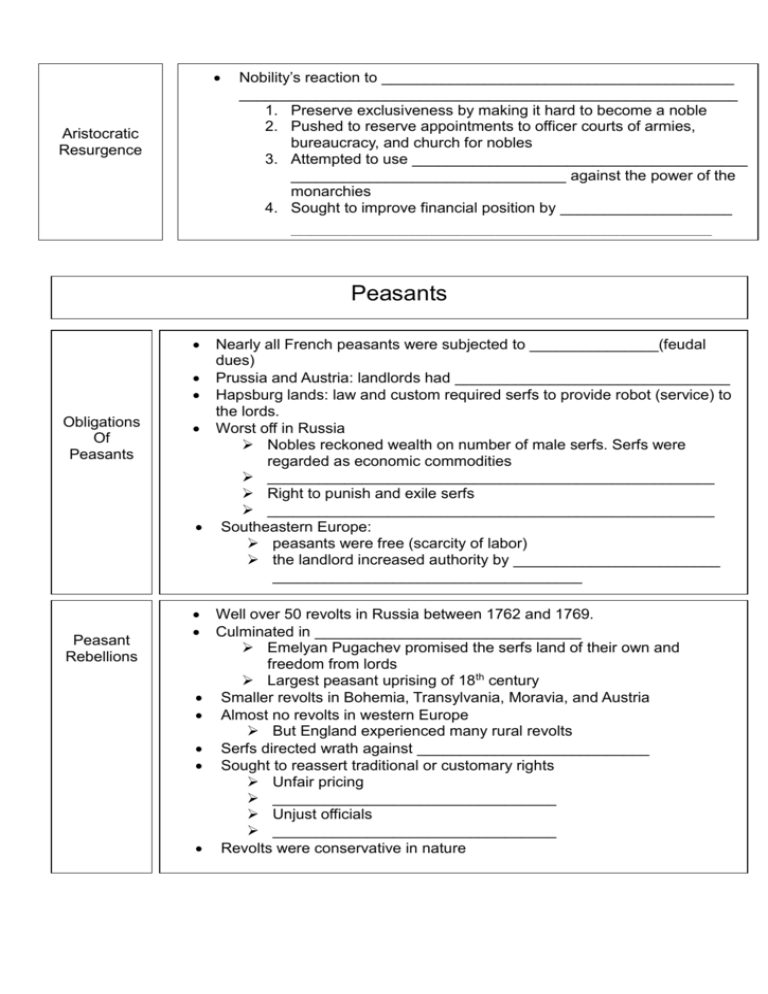
Aristocratic Resurgence Nobility’s reaction to _________________________________________ __________________________________________________________ 1. Preserve exclusiveness by making it hard to become a noble 2. Pushed to reserve appointments to officer courts of armies, bureaucracy, and church for nobles 3. Attempted to use _______________________________________ ________________________________ against the power of the monarchies 4. Sought to improve financial position by ____________________ ________________________________________________________________ Peasants Obligations Of Peasants Peasant Rebellions Nearly all French peasants were subjected to _______________(feudal dues) Prussia and Austria: landlords had ________________________________ Hapsburg lands: law and custom required serfs to provide robot (service) to the lords. Worst off in Russia Nobles reckoned wealth on number of male serfs. Serfs were regarded as economic commodities ____________________________________________________ Right to punish and exile serfs ____________________________________________________ Southeastern Europe: peasants were free (scarcity of labor) the landlord increased authority by ________________________ ____________________________________ Well over 50 revolts in Russia between 1762 and 1769. Culminated in _______________________________ Emelyan Pugachev promised the serfs land of their own and freedom from lords Largest peasant uprising of 18th century Smaller revolts in Bohemia, Transylvania, Moravia, and Austria Almost no revolts in western Europe But England experienced many rural revolts Serfs directed wrath against ___________________________ Sought to reassert traditional or customary rights Unfair pricing _________________________________ Unjust officials _________________________________ Revolts were conservative in nature The Aristocracy British Nobility French Nobility Eastern European Nobility Smallest, wealthiest, best defined, and most socially responsible aristocracy Consisted of about _____ families (eldest male member in House of Lords) Invested in ________________________________________________ ______________________________ Few legal privileges, but control over local govt. gave them political power and social influence (___________________________________) About 400,000 nobles divided: -___________________: nobility derived from military service -_________________:acquired titles by serving in bureaucracy purchasing them Two groups cooperated to defend common privileges Also divided between: -___________________________________________ Reaped immense wealth from holding high office positions -those who did not (provincial nobility-___________________) Little better off than wealthy peasants Did not pat the taille (land tax) Rarely paid the _____________________ (income tax) in full Not liable for corvee (forced labor on public works) Could collect feudal dues from tenants or Military traditions remained important Polish aristocrats: -_______________ (nobles) exempt from taxes after 1741 -right of life and death over their serfs -relatively poor Austria and Hungary: -nobility continued to possess _________________________over peasantry through manorial courts -various degrees of exemption from taxes Prussia: -position of Junker nobles became stronger after __________________ __________________________ -extensive judicial authority over serfs Russia: -Peter the Great linked state service with noble social status through Table of Ranks -determined to resist compulsory state service -Empress Anna reduced service to 25 years -Peter III exempted greatest nobles from service entirely -Catherine the Great legally defined the rights and privileges of nobles in exchange for voluntary state service (________________________) 1. Transmitting noble status to wife and children 2. Protection of rights and property 3. Power over serfs 4. Exemption from personal taxes
